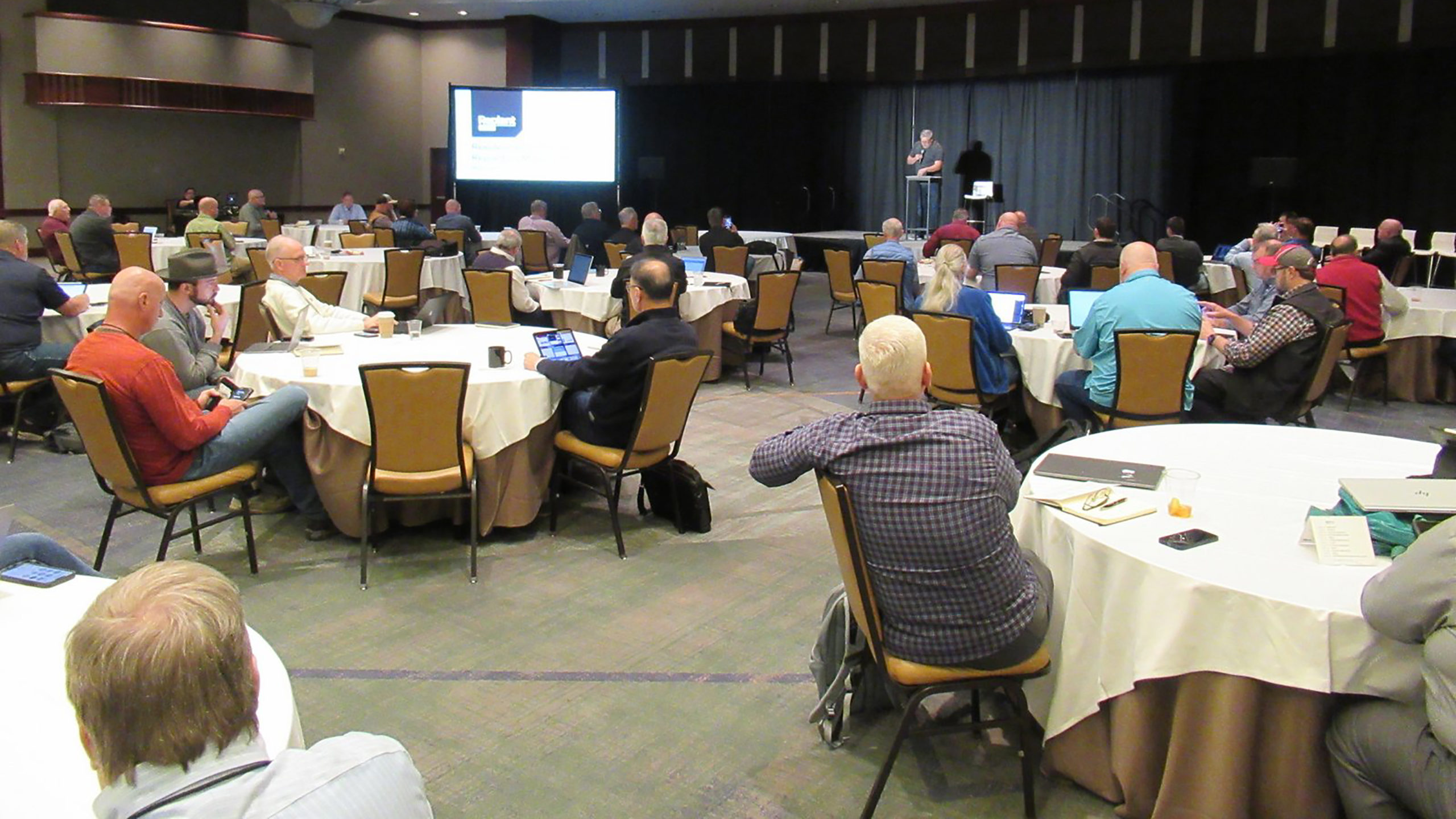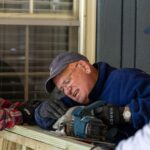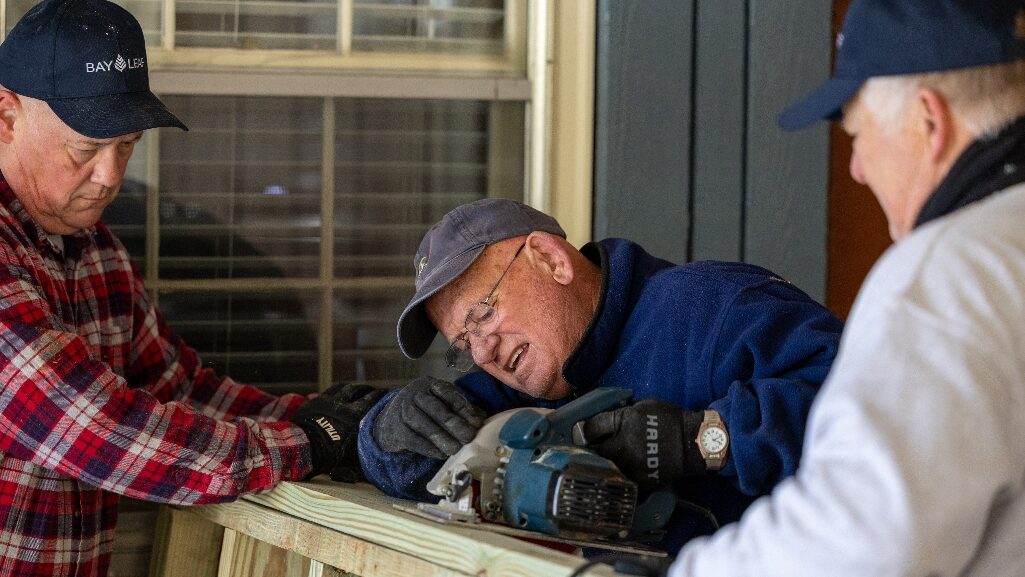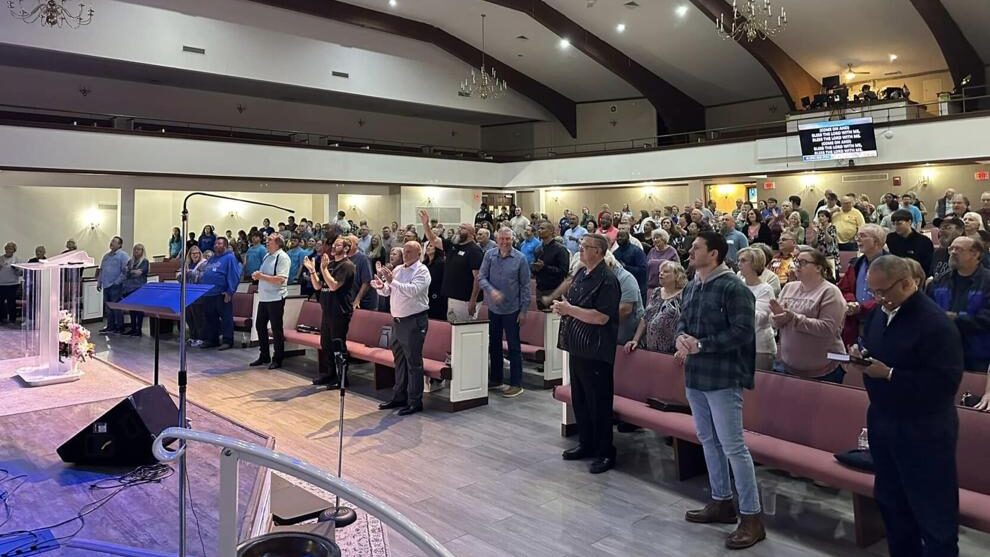Some 250 Southern Baptist pastors and associational leaders convened in Atlanta for the fifth annual Replant Conference sponsored by the North American Mission Board.
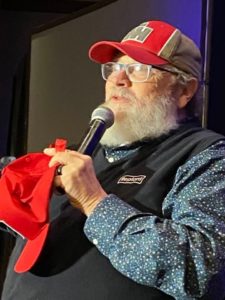
“It’s amazing what we’ve seen,” said Mark Clifton, senior director of replanting for NAMB. “Seven years ago this idea of replanting churches didn’t exist.
“Some 8,000 of our churches are on the verge of closing, but we’ve seen so many come back to life and do better than ever before. This is God’s work.”
During the March 14–15, Clifton noted the COVID-19 pandemic has, in many ways, sped up the replant process.
“Many pastors were used to having the wind at their back,” he explained. “But Covid was a headwind for us all. What we’ve found is that most of our churches are having 25%–35% fewer in attendance now, and perhaps this is an indicator of a lack of discipleship.
“Jesus called us to make disciples who make disciples who serve others and make their communities better places. This mission hasn’t changed, and with Covid, maybe we’re more desperate for God’s work.”
Clifton noted the replant process can involve a number of strategies.
“If the neighborhood has been removed by industry or has ceased to exist, in other words if there is no longer a community to be reached, then perhaps the property is sold and the funds invested in a new church in an under-churched community, but this is the rare exception,” he said. “Most of the time there is a community to be reached, and in those cases the dying church can be replanted from within with new leadership, vision and partnership with a healthy church. Or perhaps it is adopted by a new church plant or adopted by a healthy church as one of their campus churches. If the church decides to close its doors, it can always give [its] remaining assets and building to a trusted Southern Baptist partner so that that partner can plant a new church in that building.”
Though the replant process takes place in larger churches, the Southern Baptist Convention is primarily composed of smaller-membership, or what Clifton calls “normative-sized” churches.
“If you gathered all the mega-church pastors — those who preached to 1,800 or more last Sunday — they would fit on an Air France jumbo jet,” he said. “Eighty percent of our churches have 200 or fewer on Sunday, and 60% have fewer than 50. But every church has a mission from the Lord of the Church.”
‘Lighter and leaner’
Andy Addis, lead teaching and vision pastor of the CrossPoint network of churches in Kansas, agreed COVID-19 has been a “clarifier.”
“We’re lighter and leaner now,” he said. “We can start new and leave behind the things that needed to be left behind anyway.”
Addis noted smaller churches in the denomination rely on bivocational pastors who have a heart for ministry but work in another job.
“We’ve brought in a new term today,” he said. “I think of bivocational pastors as those who work two jobs but really want to do one — ministry. But the ‘co-vocational minister’ has two jobs and feels called to do two jobs. He sees the non-church-related job as a ministry for his gifts and witness. We need both of these men in the work of harvest.”
The work of the church
Addis said church plants are necessary for greater ministry.
“Churches take care of single moms and addicts, and they share the gospel,” he explained. “Nobody does what local churches do.”
Addis has developed resources for churches, including messages and music, available at replanthub.com.
“We’ve had pastors take a Sunday off and use our messages, or they use them for personal study, and churches without musicians have used our music,” Addis said. “This has been beneficial in Kansas where many of our churches are small, so we’re happy to share with any pastor who wants to use this material.”
The work of evangelism
Keelan Cook, instructor of missiology at Southeastern Baptist Theological Seminary in Wake Forest, North Carolina, urged the audience to do the work of evangelism.
“Studies show that one of five Americans is on the ‘threshold’ of religion,” he noted. “It’s a misnomer to think our secular culture won’t respond to the gospel.”
Cook added he thinks it is futile to “guilt” people into witnessing.
“You can’t satisfy guilt, but joy fills us up,” he declared. “I believe we must focus on the joy of transformation, and we must celebrate whenever God does a good work in our churches. We work toward what we celebrate, and we love by doing.”
Next year
Clifton noted church “adoption” and merger processes are among the newest models of replanting. More information on how those models work will be available in the coming months, he said.
“We must have both a sense of incredible need and have incredible faith that Jesus will help us,” he asserted. “We begin replanting by prayer and worshiping Jesus, knowing only Jesus can do this work.”
More information about church replanting is available under the “send network” tab at NAMB.net.

